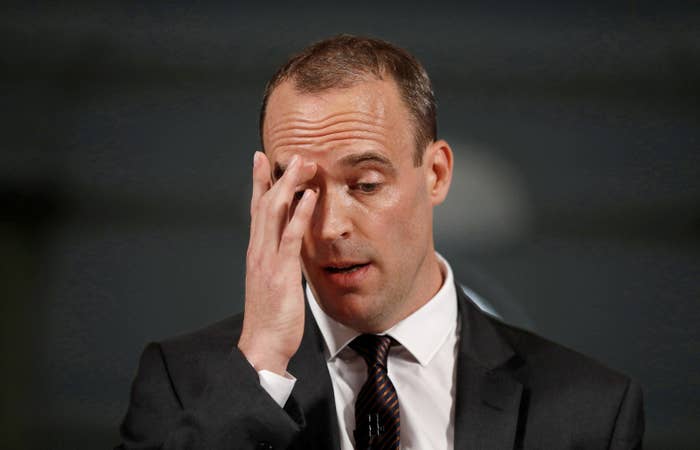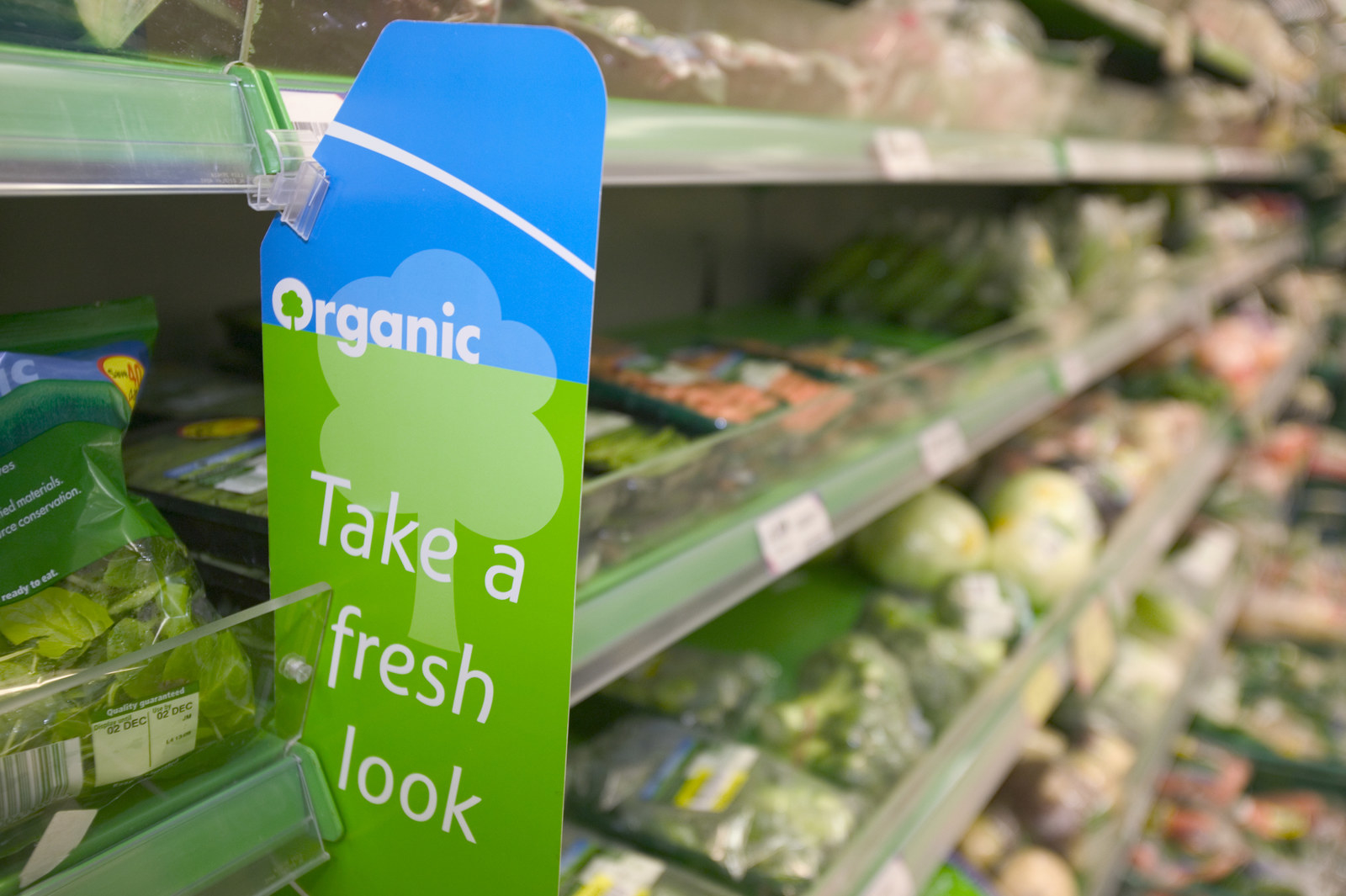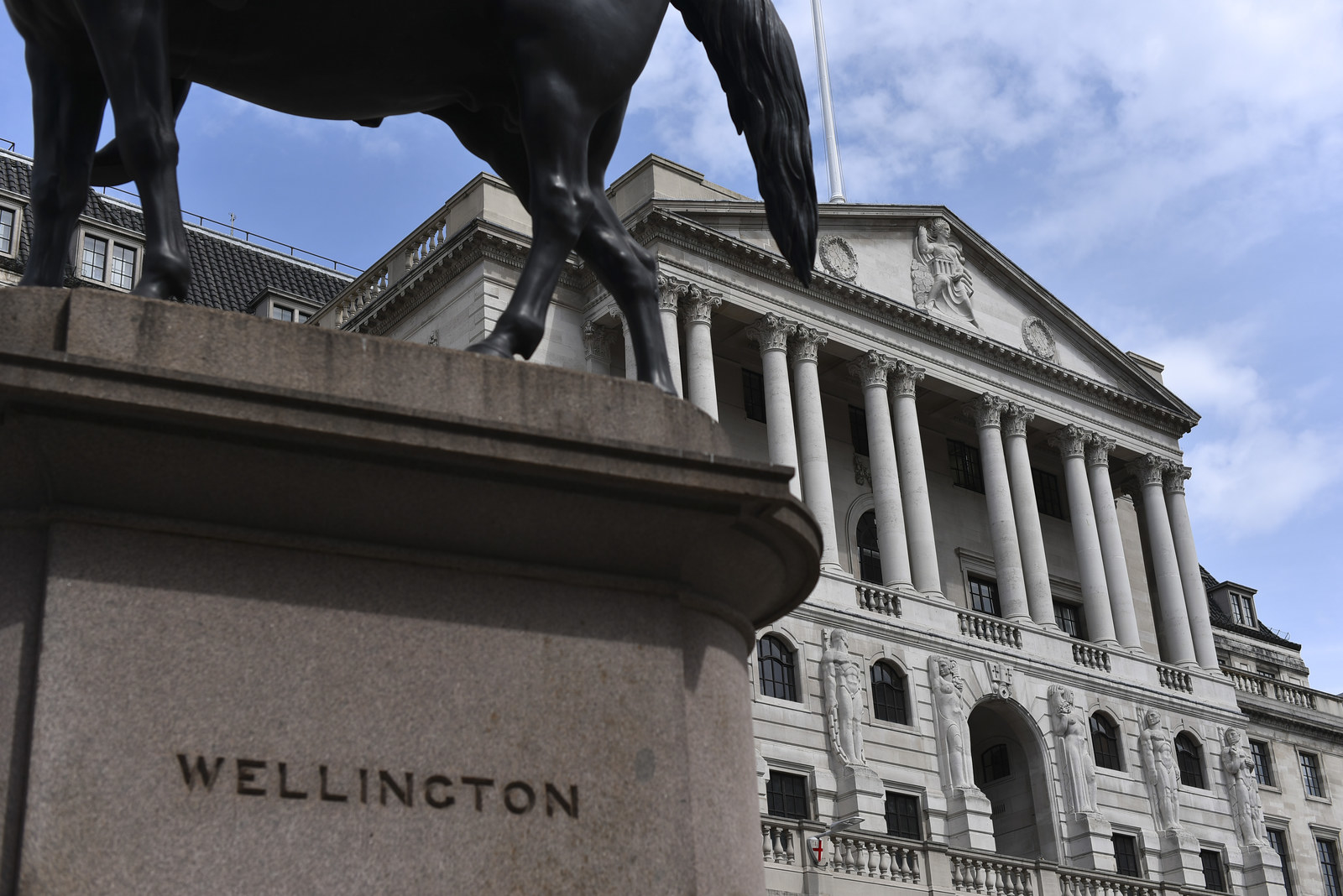
After weeks of alarming warnings from business leaders that a no-deal Brexit will be economically disastrous, the government published the first of a series of reports on Thursday in a bid to reassure the public on the consequences of leaving the EU without an agreement, as well as placate Tory backbench Brexiteers.
The message they were trying to send: “Don’t panic. We’ve got this.”
In measured, flat language, the 25 reports set out the government’s analysis of no-deal on a range of policy areas — from bank charges to nuclear safety to imported sperm donations — and were accompanied by soothing comments from the new Brexit secretary Dominic Raab in his first major speech since taking the job. As BuzzFeed News reported last week, there will be 84 reports in total, released over several weeks.
“No deal” has become the main political battleground in Westminster this summer as the argument about the terms of Britain’s withdrawal from the EU enters its final stages. Like most things relating to Brexit, it’s highly contentious, with one side saying that crashing out without a deal will be disastrous for British businesses and consumers, and the other saying that such warnings are just scaremongering by Remainers who want to reverse Brexit.

The notices’ publication will hearten Brexiteers who feared that the government would try to stoke public concerns about no-deal to build support for Theresa May’s Chequers plan.
Just hours after Raab's speech and the release of the notices, however, chancellor Philip Hammond released a letter to Nicky Morgan, the Conservative chair of parliament’s Treasury select committee, warning that no deal will have “large fiscal consequences”. Hammond pointed to a government analysis in January, first published by BuzzFeed News, which estimated that GDP would be 8% lower under such a scenario.
While there was little of that sort of talk at the launch of the first tranche of the no-deal papers, they did highlight some worrying risks for consumers and businesses in several areas.
The Warning Signs
Businesses that do a lot of trade in EU markets will be among the biggest losers if the talks collapse. Under a no-deal scenario, with goods no longer able to circulate freely across borders between the EU and UK, British companies will have to pay duty and bear the cost of additional red tape, such as filling out customs and safety declarations. They might have to buy new software and hire customs brokers to help them comply with the new regime, the government says.

Producers of organic food will be hit especially hard, facing a delay of up to nine months before they could sell to customers in the EU again. That’s how long the government says it could take for a new UK supervisory regime to get the necessary approvals from the EU to certify that British exporters meet their stringent organic rules.
British aid organisations will be cut off from funds under the EU’s humanitarian scheme, which would mean that some projects would have to be terminated early. The risk of this happening is already discouraging some aid organisations from bidding for EU funds. The government says it’ll try to limit the fallout by stepping in to fund some approved projects led by British agencies if there’s no deal.
Consumers will be hit by disruption in the financial sector. Brits will have to pay higher charges when they use bank cards to pay for products from EU providers. And UK citizens living on the continent but still using British banks would suddenly lose access to financial products like loans, savings accounts, insurance cover and annuities.
Hospitals and other bodies that import organ, tissue and sperm donations from the EU will have to strike new agreements with their suppliers. Around 3,000 sperm samples were imported from Denmark in 2017.
Tobacco companies will have to change the warning labels on their cigarette packets, since the EU owns the copyright to the pictures. And British hunters going shooting in the EU won’t be able to travel freely with their guns under the European Firearms Pass any longer.
"Don't Panic"
For the most part, though, the documents play down the disruption of no-deal.
That was expected. The documents were published at the initiation of David Davis, the former Brexit secretary, who wanted to show that the government was planning adequately for the possibility of not getting an agreement. It’s an attempt to strengthen the government’s hand in the negotiations, by showing the EU that it genuinely is prepared to walk away with a deal if Brussels doesn’t compromise, and to reassure business groups that there is a plan to avoid chaos.
"You will still be able to enjoy a BLT" - Brexit secretary @DominicRaab shoots down fears of a potential "sandwich famine" in the event of a #NoDealBrexit 🥪 https://t.co/DKjbptXXpT https://t.co/9PaH7TOqpI
The documents have been written in language that is deliberately technical and dry. They'll be released over weeks in a carefully stage-managed way, in order to dampen any negative publicity and avoid claims that the government is scaremongering to sway the public debate.
Notably, the documents make no reference to the government’s own analysis which showed that the economic impact of a no-deal Brexit would be severe.

Chalk all that up as a victory for the Brexiteers who believe that leaving with no agreement is preferably to submitting to a deal on the EU’s terms, and nowhere near as catastrophic as Remainers claim.
In financial services, the government says it’s already done a lot of preparation to make sure that banks, insurance and other financial companies will still have the authorisations required to do business even in a crash-out scenario.
There’s also no need to panic, the reports say, if funding from the EU for farmers, scientific research and other projects is suddenly cut off. The government has committed to step in and cover funding in a no-deal scenario for rural development, Horizon 2020, Erasmus and nuclear research.
Workers’ rights guaranteed by European laws - things like holiday pay, parental leave and health and safety - will carry on, because they’ve been enshrined in UK law by the EU Withdrawal Act.
And, the reports say, steps have been taken to ensure that supplies of crucial medicines aren’t disrupted in the event of no-deal. Likewise, they insist, there’ll be no disruption to the availability and safety of blood products.
From the assertion that a trade deal with the EU would be "one of the easiest in human history" to having to prepare for the stockpiling of medicines. Proof that No Deal really would be the worst outcome of all.
Experts' Fears
Despite these assurances, the no-deal notices don’t seem to have satisfied experts and campaigners in a range of areas who warn that no-deal will be a disaster.
Josh Hardie, deputy director of the Confederation of British Industry, which represents 190,000 businesses, said: “These papers show that those who claim crashing out of the EU on World Trade Organisation rules is acceptable live in a world of fantasy, where facts are not allowed to challenge ideology.”
The National Farmers Union said it was unacceptable that organic food might not be allowed into the EU for nine months. That would be disastrous for farmers, said Minette Batters, the NFU’s president.
Ian Wright, of the Food and Drink Federation, said the documents showed there will be “frightening” new burdens on small food producers. He said the reports were missing vital information, such as how the government plans to mitigate the impact of no deal on cross-border trade in Ireland.
“The piecemeal release of these notices indicates that many are not yet ready and agreed for publication,” Wright said. “That hardly inspires confidence.”

Adam Marshall, director general of the British Chambers of Commerce, said the notices will be “cold comfort” for UK companies that face new customs bureaucracy with little time to prepare. “We need to know much more,” he said.
Hugh Savill, of the Association of British Insurers, said that British customers living on the continent will be badly hit by the loss of access to insurance and banking services. “Obviously insurers want to meet their commitments to their customers, but this problem has the potential to affect millions of insurance customers, including UK pensioners living overseas,” he said.
Representatives of the pharmaceutical industry welcomed a call from the government to stockpile six weeks’ worth of medical supplies. But Mike Thompson, chief executive of the Association of the British Pharmaceutical Industry, said: “We need to be clear that a ‘no deal’ scenario is not in the interests of patients.”
Critics have pointed out that some of the government’s contingency planning - including on the supply of medicines - requires cooperation from the EU to avoid a catastrophic disruption. That could be optimistic, given that by that point the withdrawal talks will have broken down.
Labour’s Brexit spokesman Keir Starmer asked why the reports were only being published now, with only months left before Brexit.

